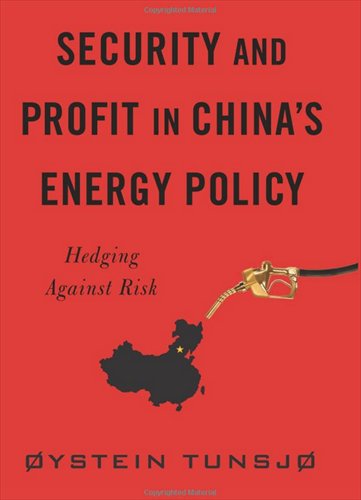HOME >> OP-ED
Growing China hungry for energy but keen to minimize possible risk
Source:Global Times Published: 2014-1-2 21:48:01

Øystein Tunsjø, Security and profit in China's energy policy - Hedging against risk, Columbia University Press, November 2013.
China is rapidly emerging as a major stakeholder in both global energy markets and energy geopolitics. Energy security is viewed not only as a domestic economic development issue for China, but also a part of its foreign policy given large-scale cooperation in the fields such as petroleum and natural gas with various regions and countries across the world.By introducing the concept of hedging and risk management, Øystein Tunsjø, an associate professor with the Norwegian Institute for Defense Studies, evaluates China's energy strategies in his book Security and profit in China's energy policy - Hedging against risk, which was published in November, 2013, by Columbia University Press.
The book focuses on oil because China needs to import oil in substantive quantities and hence needs to "secure" its supply.
It tries to demonstrate that China, an investor seeking both security and profits, has developed hedging strategies to ensure against its growing net oil import gap and oil supply disruptions. In other words, hedging is a central feature of China's energy security policy.
In the eyes of the author, both market and strategic considerations shape China's energy security policy. In some cases, the pursuit of profits may be the most important factor, while in others, the government prioritizes security of supply.
Hedging, in international politics, can be defined as a strategy aiming to merge conciliation and confrontation. When applied to energy, it is a strategy that minimizes any possible risks.
For example, although the Chinese economy is overdependent on petroleum import, China can still profit in a highly globalized and interdependent world by establishing closer diplomatic ties with oil export countries and strategically important countries.
One notable feature of the book is that it draws important distinctions between peacetime and wartime contingencies while much of the existing literature fails to address the issue. The author argues that in the event of a conflict or war with the US, which he considers highly unlikely, China would be able to withstand a blockade for a number of years because of its domestic energy production, although China's economy and domestic stability would seriously suffer.
The author mentions in private communication with this reviewer that he would have liked to examine more closely the implications for China of the revolution in US petroleum production.
China has become the world's largest net oil importer mainly because the US import demand has fallen dramatically.
The author says that the book would be more comprehensive if more detailed knowledge about the relationship between the Chinese government and State-owned oil companies, the PLA and the maritime economy sector, could be added. But this remains a difficult area to research. Recent deals such as the one between China National Petroleum Corporation and Russia's Rosneft could also have been added to the book.
And finally, the author thinks discussion of China's energy security policy has in the past two years been shifting from "securing supplies" to constraining demand, a change significant enough to warrant another book in itself.
Posted in: Fresh off the Shelf